- How to Use
-
by k.mammasis
Functional foods are foods that provide health benefits beyond basic nutrition. They can be incorporated into a healthy diet to help prevent or manage certain health conditions. Here are some tips on how to use functional foods:
- Identify your health needs: Determine which health conditions or concerns you would like to address through functional foods. For example, if you are at risk for heart disease, you may want to focus on foods that are high in fiber, omega-3 fatty acids, and antioxidants. Based on your needs feel free to navigate to any of our health categories and choose your product accordingly.
- Choose the right foods: Select foods that are rich in the specific nutrients or compounds that have been shown to offer health benefits. Some examples include berries, medical olive oil, nuts, whole grains, pomegranate, and dark leafy greens.
- Incorporate them into your meals: Add functional foods to your meals and snacks in creative ways. For example, you can top your breakfast yogurt with berries and almonds, add spinach to your lunch salad, or incorporate fatty fish into your dinner menu if you are not a vegan.
- Experiment with recipes: Look for recipes that feature functional foods or experiment with your own recipes to include them. For example, you can make a smoothie with berries and spinach, and add a shot of our pomegranate concentrates to boost the targeted health effect or create a quinoa salad with nuts and veggies and add a shot of our medical grade olive oil boosters for omega 3 or vitamin D3 deficiencies.
- Monitor your intake: Be mindful of how much of these foods you are consuming and aim for a balanced and varied diet. While functional foods can provide health benefits, they should be part of an overall healthy eating pattern.
Remember that functional foods are not a substitute for medical treatment or a healthy lifestyle, including regular physical activity and stress management. Consult with your healthcare provider or a registered dietitian for personalized advice on how to incorporate functional foods into your diet.














